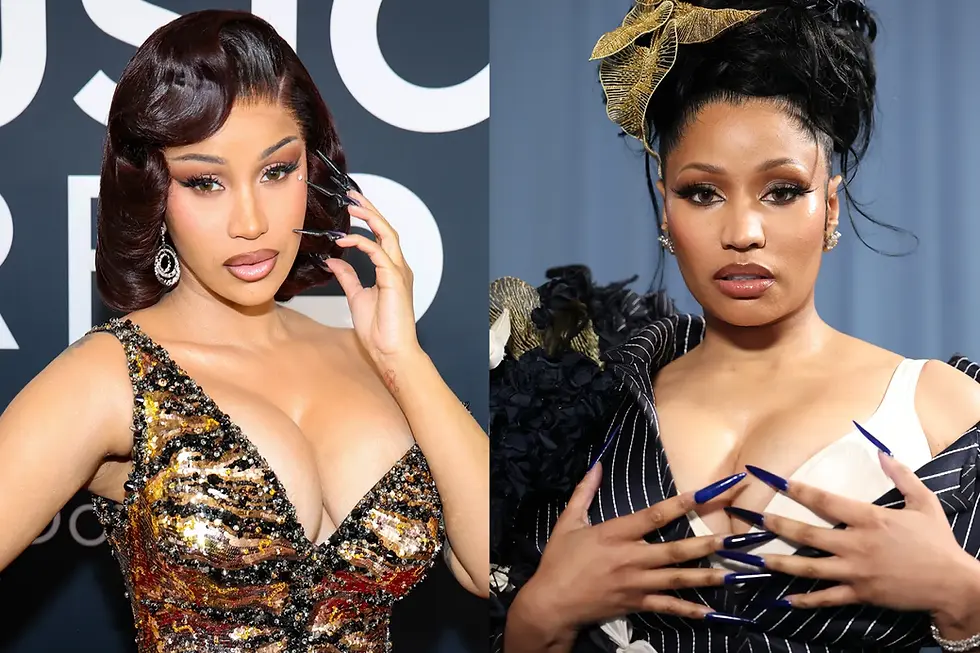Living Legends, Living Lessons: Inside a Night that Honored the Architects of Black Radio & Music
- Crystal Jordan

- Oct 9, 2025
- 4 min read
By Crystal Jordan
Auesomely You Magazine
Published: 10/09/2025
Pillar Focus: Advocacy

Atlanta reminded the industry who it is—a cultural engine—at a ceremony that felt less like an awards show and more like a family reunion with receipts. The Living Legends Foundation gathered executives, programmers, artists, and media icons to celebrate a lineage that turned community radio into global culture and opened doors that many of us now walk through.
From a moving remembrance of a mentor who launched careers, to a full-circle salute for the producers behind era-defining hits, the evening stitched personal history to institutional impact. Here’s what mattered and why.

A Mentor’s Legacy, Paid Forward
The night opened with an emotional acceptance from a recipient of the Kendall Mentor Award, who traced the honor back to the day a young law grad named Kendall called to say a firm wouldn’t let him touch entertainment. A spare office turned into a launchpad—“he started his practice in my office”—and a brotherhood that lasted until Kendall’s passing last year. The honoree accepted “on behalf of three families”: the one he was born into, the one he married into, and the one he built through work. It set the tone: achievement here is communal.

A Concise History of Atlanta’s Sound—and Why It Still Wins
Atlanta’s story was told not as nostalgia, but as proof. Long before OutKast’s 1995 “The South got something to say,” Black-owned and college stations were building the scaffolding:
WSB/WDK and WVEE (V-103) helped formalize Black programming with deep community roots.
Clark Atlanta University’s WCLK cultivated jazz credibility and local talent.
LaFace Records (L.A. Reid & Kenneth “Babyface” Edmonds) turned the city into a hit factory—TLC, Toni Braxton, Usher—while producers like Organized Noize and Jermaine Dupri made “Atlanta” a genre.
The 2000s brought crunk and the rise of independent hustles; the 2010s minted a new blueprint with Quality Control and a wave that included 2 Chainz, Future, Young Thug, 21 Savage, and more.
The message behind the montage: Atlanta doesn’t chase moments; it manufactures them.

Chair Award: James Winston, The Policy Powerhouse
James Winston, longtime head of the National Association of Black Owned Broadcasters (NABOB), received the Chair Award for decades of high-stakes advocacy—keeping Black-ownership issues in front of the FCC, Congress, and administrations across the aisle. He helped make the NABOB dinner a must-attend D.C. institution and built training pipelines (including media sales programs) that changed careers. His through-line: protect ownership, protect voice.
Lifetime Achievement: Jimmy Jam & Terry Lewis
If you measure impact by what the world sings, Jimmy Jam & Terry Lewis are a continent. With more Billboard No. 1s than any songwriting/production team in history and an artist roster that spans Janet Jackson, Boyz II Men, New Edition, George Michael and beyond, the duo accepted the Ray Harris Lifetime Achievement Award with their trademark humility. The subtext was a masterclass: longevity is collaboration plus curiosity, repeated for four decades.

Media Icon: Cynthia Horner, The Teen Press That Grew Up With Us
Before timelines and blogs, there was Right On!—and there was Cynthia Horner. As editor and now publisher of Right On! Digital, Horner has chronicled (and often protected) generations of Black stars from Michael Jackson onward. She accepted the Media Icon Award with gratitude to the community that “kept me safe and working,” a reminder that Black media doesn’t just report the culture; it preserves it.
Radio Executive of the Year: Kashon Powell’s Scoreboard
From KBXX/Houston to WDAS/Philadelphia, WMMJ/Washington, D.C., and now iHeart Chicago VP of Programming, Kashon Powell was honored for what truly counts: wins. Ratings turned, brands strengthened, teams developed. In a field where women in top chairs remain underrepresented, Powell’s résumé is both blueprint and challenge: build the room, then build the next leaders who’ll sit in it.
Record Executive of the Year: Sam Selolwane, The Connector
If your favorite R&B and hip-hop records found the right home at radio, odds are Sam “Sam P” Selolwane had fingerprints on the plan. The RCA executive—saluted for championing everyone from Chris Brown to Victoria Monét—was celebrated for something rarer than a hit: a sustained culture of sisterhood. Colleagues called her first in celebration and first in crisis; she’s the exec who tells you, “If they won’t open the door, build your own building.”
Awards are snapshots. The Living Legends Foundation developed the roll of film: ownership, mentorship, editorial protection, A&R curation, and the radio strategies that keep Black music discoverable at scale. It’s advocacy embedded in business outcomes.
And for those of us who came up on late-night board ops, stapled media kits, or street team flyers, it was also permission: the work behind the work is worthy of a spotlight.
Quotable Moments
“I receive this on behalf of three families—born, married, and built. None of this happens alone.”
“You can’t choose the empire over the kingdom—own your mission and your voice.”
“Before it was social, it was Right On! Black media didn’t just cover us; it protected us.”
“Don’t wait on an open door. If you have to, build the building.”

The Assignment Going Forward
Protect ownership. The policy battles continue.
Fund the pipeline. Training and mentorship must be resourced, not romanticized.
Honor the archivists. Our storytellers guard legacy—and receipts.
Champion women leaders. Not as exceptions, but as standard-bearers.
The living were honored, and so were the lessons. If Atlanta is the proof, Black radio and records remain the lab—where culture isn’t just played; it’s made.
Follow @AuesomelyYouMag for event highlights, inspiring features, and the heart of advocacy and celebration.
Want to write for Auesomely You Magazine?
Email us at writers@auesomelyyoumagazine.com
.png)



Comments